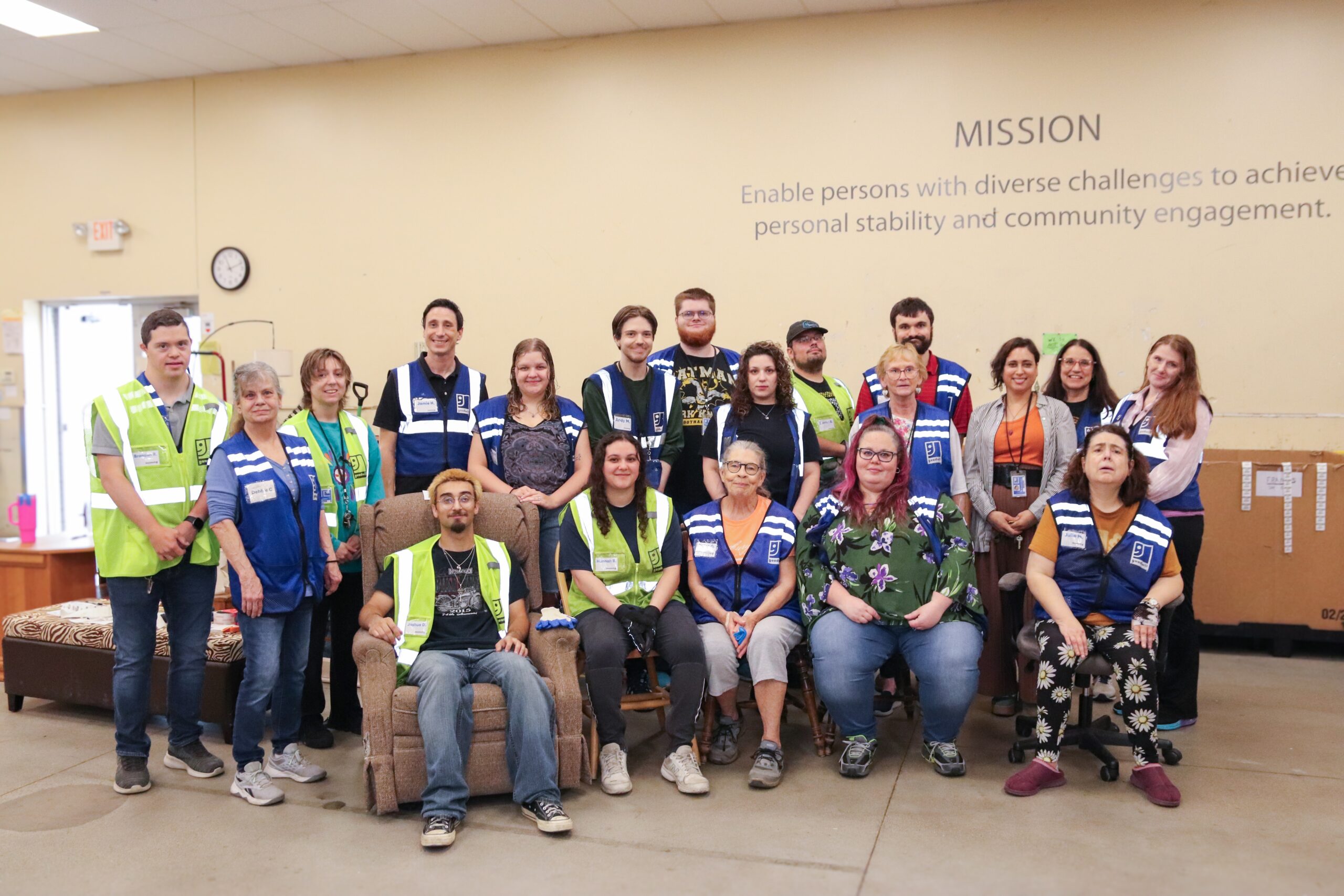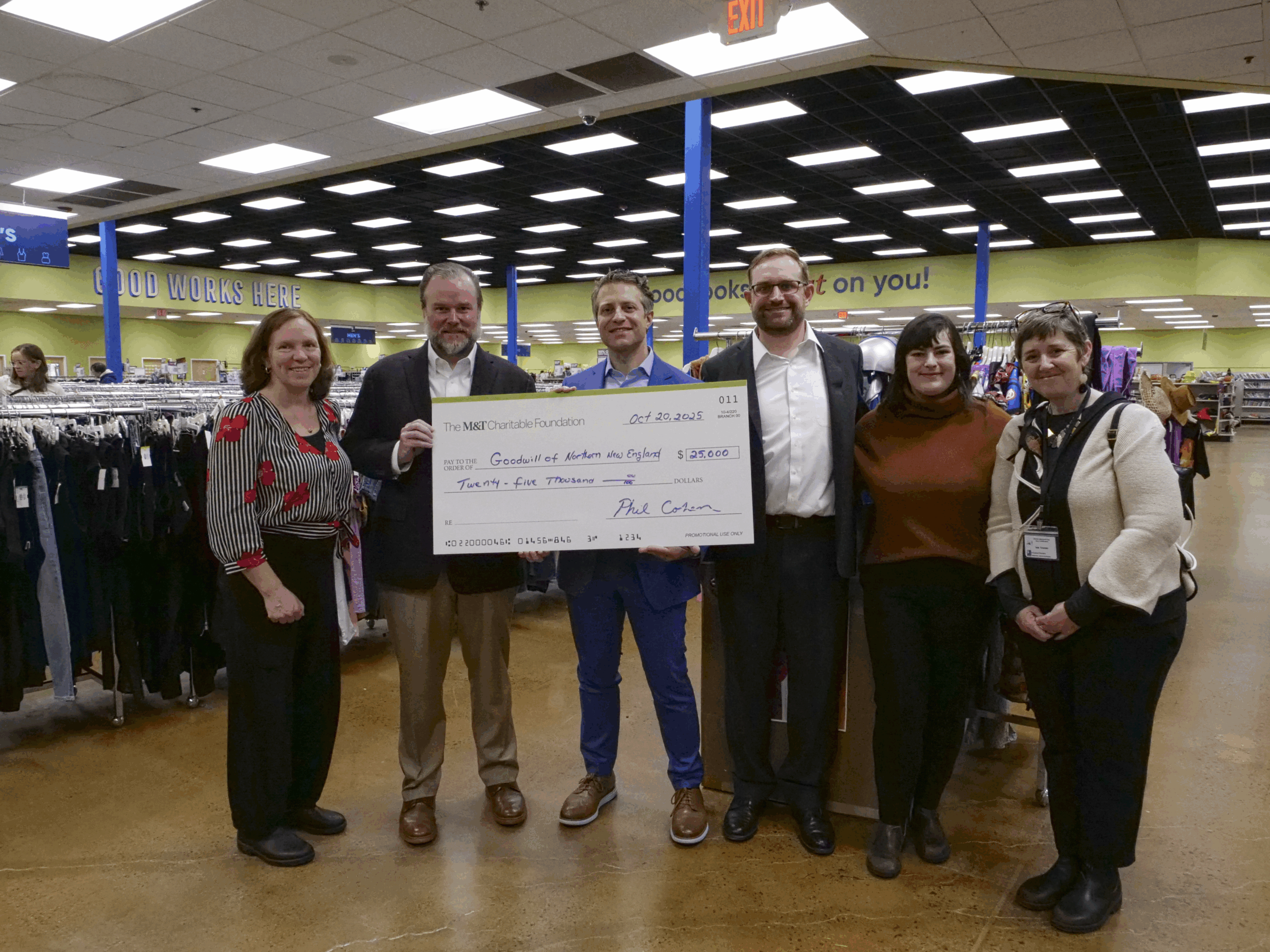News
What happens to the donations that don’t sell?
April 17, 2023
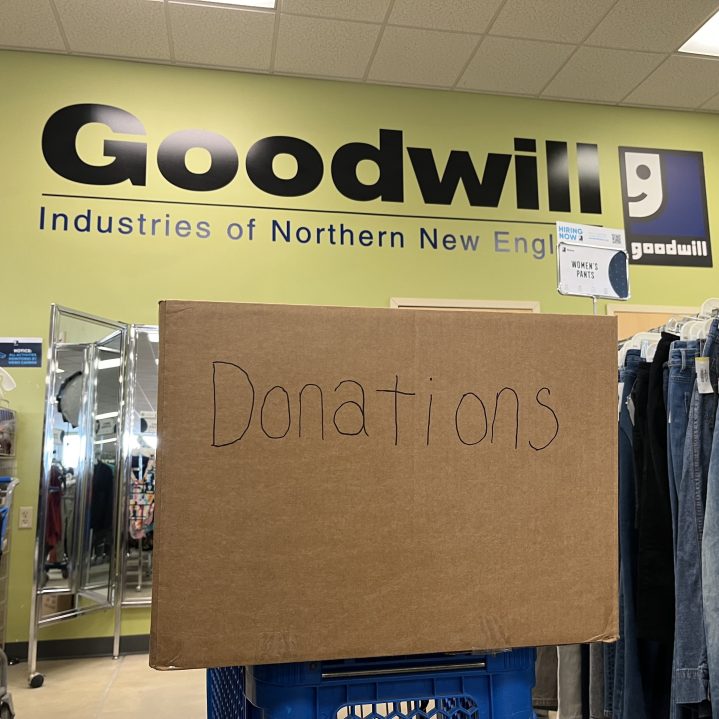
We get a lot of questions about what happens to items if they don’t get purchased in our stores. We don’t throw them away, and want to give you a behind the scenes look at all the re-uses we find for them.
Your donations
When you hand us a box of clothes or toys that you don’t want or need anymore, the donation specialists sort through the goods to check the quality and see if we can sell the items. There are certain items we cannot accept, like air conditioners and mattresses, so it’s really important to only donate items on our acceptable donations list.
Sorting donations
We try to offer good quality items that will last, which is why it’s so important your generous donations are only gently used. Your donations get sorted into specific boxes which determine where the item will live in the store. We have boxes for Halloween costumes, shoes, children’s clothes, books, Christmas decorations, throw pillows and so much more. We even have a box for scout uniforms, which we collect all year long until the fall when we partner with a local scout leader to give kids free uniforms so they can join their local troop.
Tag colors
After donations are checked and sorted, they are priced and tagged with a specific color and put out on the sales floor. Our color system determines which items will be on sale each week. By the time a color is on sale at 50% off, that color has been on the floor for five weeks. On Sundays, the sale color is now just $1.50. On Mondays, we offer customers the chance to stuff an entire shopping bag with the sale color for just $15, giving those items one last chance in the stores. The goal of these sales is to give each item the most amount of time to be purchased before it gets sent to its next destination. Once an item has been in the store for five weeks and nobody purchases it, it’s pulled into the back room once again, and is ready to be sent to the next stop. But, we don’t just throw items away.
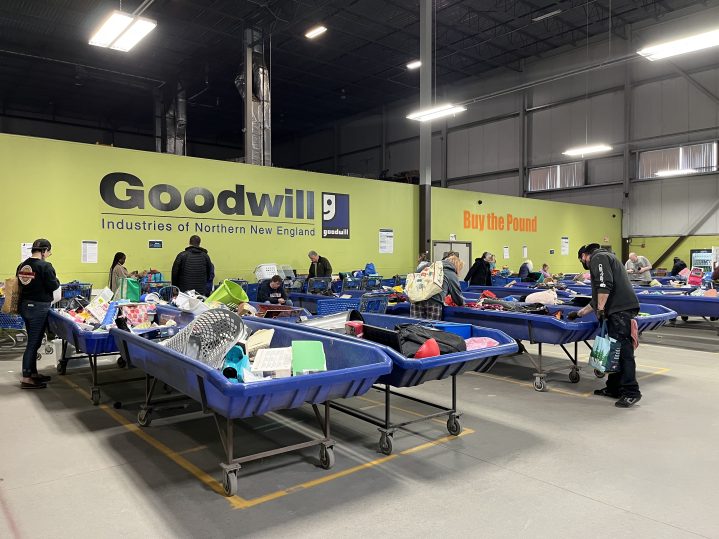
From the store to the outlets
After items leave the stores, they are sent to our warehouse to get another chance at finding a new home. Our warehouses are attached to our Buy The Pound outlets. The warehouse team sorts through those goods again, placing them in the large blue bins that fill our Buy The Pound outlets in Maine, New Hampshire and Vermont. These bins are sorted by textiles, hard goods, toys, books, shoes, glass, and more. Our outlets mark down the price of these goods significantly, allowing shoppers to pay by the pound, rather than paying for individual items. Prices at the outlets, include $2 per pound for clothes and shoes, and $0.30 per pound for electronics and books. Our local community shops at Goodwill Buy The Pound outlets to restock their reseller shops, vintage stores, antique shops and other small businesses. The categorized bins rotate in and out on a 45 minute schedule, so there’s a constant influx of newly sorted bins to look through. Anything that isn’t sold in its short time is then onto another stop.
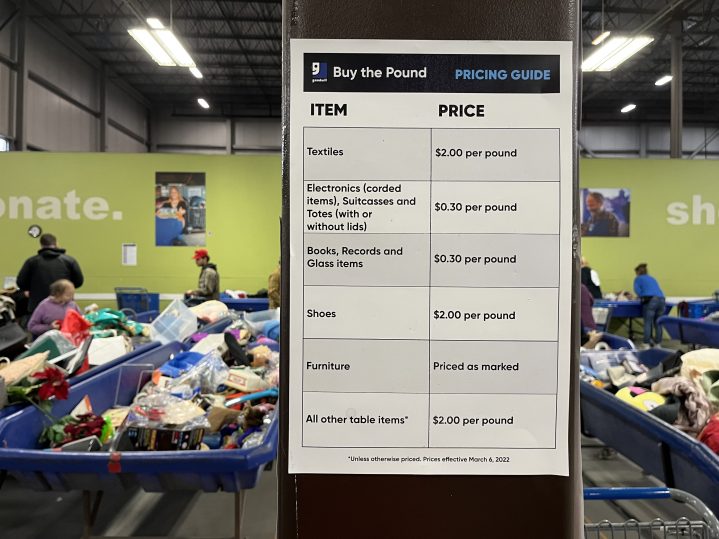
What happens to the unsold items?
Goodwill has a way to reuse or recycle almost everything; an item’s path depends on what it is. For example, we only accept gently used items, but sometimes a shirt has a tear. Instead of throwing away shirts or towels we can’t sell, we send them to our warehouse where they are cut up, turned into wiping cloths and sold to local boat builders and artists. Donated electronics are refurbished and sold through GoodTech, and unusable computers and their parts are wiped and recycled through our partnership with Dell Reconnect. Kitchenware, electronic wires, shoes, stuffed animals and other leftover items all have homes with businesses that buy them in bulk. Cardboard, metal and plastic that don’t have alternate uses (ruined Monopoly boxes, broken fake Christmas trees, warped plastic toys, etc.) all get recycled.
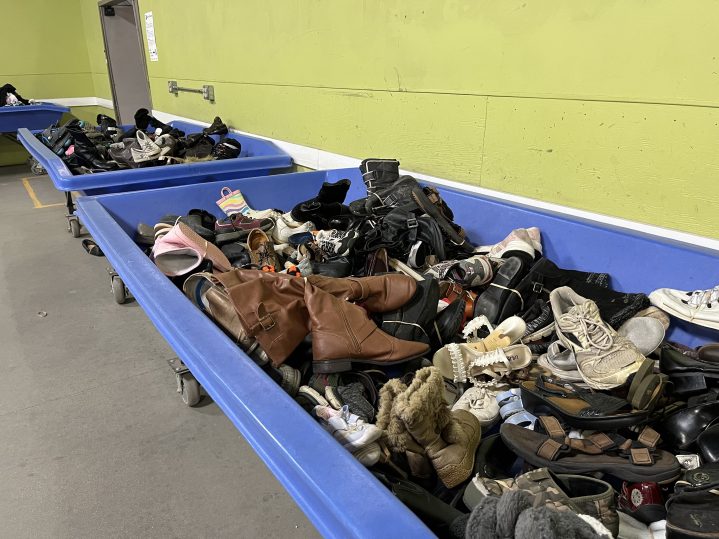
Items we cannot accept
There are a few items that cannot be recycled, which is why it’s so important that only the items we can accept get donated. When we receive old air conditioners, mattresses, or anything we can’t sell – we do have to throw them away, and that cost takes away from our mission work.
Goodwill NNE diverted over 40 million pounds of goods from local landfills each year. But, we can only do that great work with your help.


